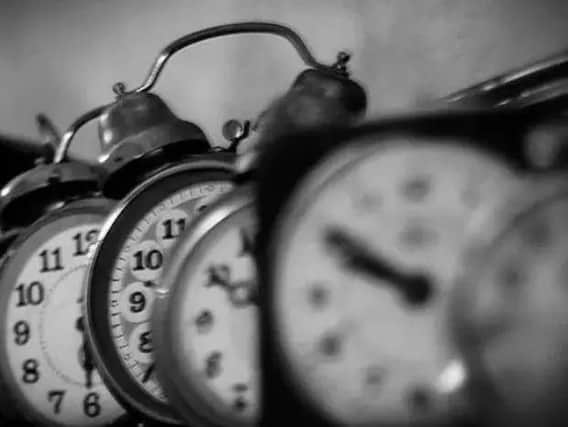When do the clocks go forward in 2017?


Daylight Saving Time will begin at 1.00am on Sunday, March 26, 2017 when the clocks move forward by one hour, signalling the official start of British Summer Time.
The hour changes in spring and autumn in an attempt to make the most of the light, with the old phrase “spring forward, fall back” helping us remember which is which.
Advertisement
Hide AdAdvertisement
Hide AdIn the summer months, the hour changes mean there's more daylight in the evenings and less in the mornings (so its sometimes called Daylight Saving Time).
BST ends onl October 29, 2017, when the clocks go back by one hour at 2am and GMT resumes.
Why was the hour change introduced?
The idea was first introduced by prominent Edwardian builder William Willett, who suggested in 1907 that clocks should be changed at different times of the year to provide more daylight during waking hours.
His notion was that it would save on energy costs and offer people more time outdoors.
Advertisement
Hide AdAdvertisement
Hide AdIt was almost ten years later when the Government adopted his ideas in 1916 to help during the First World War, as politicians believed it would help reduce the demand for coal.
Why are clocks still changed each year?
The Government says the clocks are still moved forward in the summer as there is more sunlight in the evening and moved back in the autumn as there is more sunlight in the morning.
Supporters of this policy say it reduces energy use and is beneficial to workers, making them happier and more productive. Some areas of the economy also benefit. The golf industry claims the changes help generate an extra £246.5 million in sales and green fees, for example.